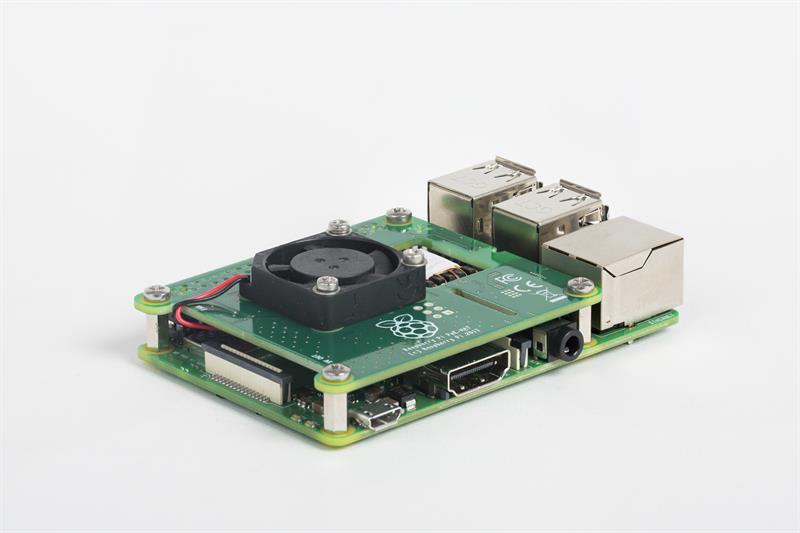Through a combination of focus groups and user feedback generated through Farnell element14’s online community, Raspberry Pi believes it has ‘perfected’ its previous board, Pi 3, with the release of Pi 3 B+.
“We have surveyed our customers and nearly, if not all, of the asks have been addressed with this product,” Wenzel said.
 Among the asks was a dual band wireless LAN and the board offering has moved from 2.5GHz to 5GHz. Wenzel explained that this channel was less crowded and has led to a 'much more stable and reliable’ product.
Among the asks was a dual band wireless LAN and the board offering has moved from 2.5GHz to 5GHz. Wenzel explained that this channel was less crowded and has led to a 'much more stable and reliable’ product.
Power over Ethernet (POE) was a second request from customers, which has been addressed via the inclusion of Gigabit Ethernet over USB 2.0. This is said to deliver a maximum throughput of 300Mbps through the board’s four USB 2.0 ports and retain the 40-pin General Purpose Input Output header connector.
| Above: Peter Wenzel |
Users also flagged up eMMC memory, requesting memory-on-board rather than an SD card which can fall out or become easily damaged. The addition of POE resolved this concern as all data is fed through the Ethernet cable and made eMMC 'irrelevant'.
The board has also been developed with time and cost in mind. “Historically on Pi 3 or before,” Wenzel explained, “if users put hardware around Pi, such as a hat, or if they connected separate boards and put that it in their end product, they would have to go back and get FCC and CB certification."

| Above: Official Raspberry Pi PoE HAT onboard |
A tin hat sits on top of the wireless chip in the Pi 3 B+, meaning it can be classed as a module. “The addition of this hat has enabled modular certification to this wireless subsystem, which means users can put whatever they want around it, but don’t need to go back and get certification. This is a great cost and time saver.
“The revolutionary part of this product is that we are offering it at $35, packaged in a compact board. It’s on the market for the same price point always offered. Not many products can say they’re offered at the same price they were in 2012.”
This board also features the same quad-core Broadcom BCM2837 64-bit application processor its predecessor used, but has been repackaged to improve speed. According to Wenzel it has enabled a ‘15% increase, from 1.2 to 1.4GHz’. A heat spreader sits on top on the processor, which is said to allow it to run faster at cooler temperatures.
Farnell element14 also identified reliability and longevity as customer necessities. As a result, it has committed to manufacture this product until 2023.
“Next on the agenda is to sell all our stock!” Wenzel continued. “Longer term, the Pi foundation is thinking about what products they can next introduce. It is always challenging itself to progress and evolve its technology. But in the meantime, we’re very excited about this project.”













